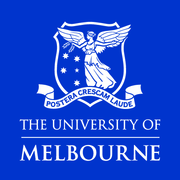Melbourne Uni partners with Coursera to offer free online courses – StartupSmart
The University of Melbourne will offer seven free online courses after partnering with US company Coursera, with three of the courses covering topics in economics and technology.
Coursera, which describes itself as a social entrepreneurship company, was founded last year by Stanford University academics Andrew Ng and Daphne Koller.
The company partners with top universities around the world to offer free online courses, enabling “the best professors to teach tens or hundreds of thousands of students”.
Coursera claims to have reached more than 1.3 million students since its first courses went live six months ago.
It has partnered with more than 30 universities around the world, including Stanford, Princeton and Brown, and now the University of Melbourne has been added to the list.
According to Melbourne University’s chief academic officer Margaret Sheil, seven free courses will go online next year. The university expects to have about 10 courses available through Coursera by the end of 2013.
Sheil says the University of Melbourne is pleased to be the first Australian university to partner with Coursera.
“The past year has seen an explosion in interest in online opportunities… Melbourne [University] is looking forward to being at the forefront of those developments,” Sheil says.
“Our initial set of subject offerings through Coursera will be diverse, ranging from macroeconomics and animal behaviour to discrete optimisation and epigenetics.”
“The university is [also] looking at ways to increase our use of technology in existing campus-based courses.”
Here’s an overview of three of the first online courses:
1. Principles of Macroeconomics
This course will examine the main bodies of economic theory that have been used to guide economists’ and policymakers’ understanding of the macroeconomy.
It will cover macroeconomic concepts such as unemployment and inflation, and examine the intellectual basis for the monetary and fiscal policy responses to the global financial crisis.
The aim is to enable those who take the course to become informed analysts of the macroeconomy and of current macroeconomic policy debates.
2. Discrete Optimisation
This class is an introduction to discrete optimisation and exposes students to some of the most fundamental concepts and algorithms in the field.
It covers constraint programming, local search and mixed-integer programming for complex practical problems in areas such as scheduling, vehicle routing and supply chain optimisation.
3. Generating the Wealth of Nations
This course will explore the story of economic development – from the Malthusian era to the Industrial Revolution and the Great Divergence, and finishing with the GFC.
It will cover the main episodes and events in the development of the world economy in the past 300 years, and have something to say about most regions of the world.
The course will consider what lessons historical experience can provide for understanding how some countries today are so rich yet others remain so poor.

